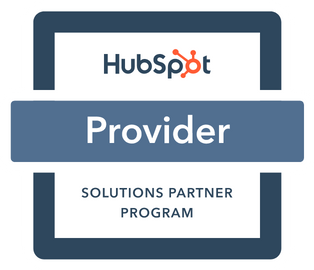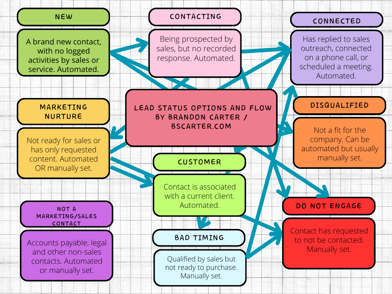HubSpot is complex. The company does a great job of selling its user-friendliness and their infinite content resources make it seem like everything can be easily learned.
But there's a reason HubSpot itself requires new clients to work with consultants in onboarding: HubSpot is easy; customizing it to your business and rolling it out to employees is hard.
You have a couple options:
- If you have someone in your organization with certifications and proven knowledge, HubSpot will sometimes waive any required onboarding and let you handle it internally
- You can hire one of hundreds of HubSpot Partner Agencies
- You can hire an individual HubSpot consultant
Veteran HubSpotters with that array of knowledge are hard to find. Even if you have one at your company, you may want to give them extra resources in the day-to-day management of your portal. It's a big complex system after all.
Let's take a closer look at how agencies and consultants are different, and why you might want one over the other.
HubSpot Agencies vs HubSpot Consultants
 HubSpot Partner Agencies are usually larger organizations that have specialists across a variety of disciplines. Some of those disciplines might be other aspects of marketing, such as SEO or paid media. They tend to have multiple layers of contact as well, so you'll get a larger team to work with including some combination of account managers, project managers, strategists, and technicians.
HubSpot Partner Agencies are usually larger organizations that have specialists across a variety of disciplines. Some of those disciplines might be other aspects of marketing, such as SEO or paid media. They tend to have multiple layers of contact as well, so you'll get a larger team to work with including some combination of account managers, project managers, strategists, and technicians.
HubSpot consultants are usually solo practitioners who take on a limited set of clients. They're doing all the things, including running their business (think taxes, invoicing, etc.) along with the client work.
Agencies will almost always come with a higher cost. Besides larger teams they also have overhead to cover, executive salaries, and non-client-facing aspects such as HR or marketing.
Consultants can charge less because, well, it's just be one person with a finite set of tools and minimal overhead.
The extra cost of an agency usually means you have access to a broader set of specialists. For example, integrating outside systems into HubSpot requires some knowledge of APIs and coding. Building websites requires web development skills. Many HubSpot agencies have departments full of these nerds.
Most HubSpot consultants fall into one of three buckets: marketing, development, and sales. They can check two of those boxes but it's rare to find someone who can do all three (and to be honest, you probably don't want a marketing specialist building out your API connections - hire for specialties).
Let's dig into a couple other key considerations.
Consideration: Speed vs Precision
One of the great benefits of HubSpot agencies is speed. You get big teams with a lot of expertise and experience and they can crank out processes rapidly. You can pay them for 50 hours a month, and with six people working on the account those hours will go quickly - but so will the work, usually. The downside is the speed usually comes at the expense of accuracy, or at least, building the exact process that fits your business.
HubSpot consultants have to move methodically. Many of them will have subcontractors who can help build processes, but compared to an agency, it's going to feel much more deliberate. 50 hours to a consultant is like, a third of their time in a month - they're going to be spending a lot of it embedded in your business needs. They move slower than an agency, but the upside to a consultant is precision, or building the right process based on your business' needs.
The consideration here is, if you feel like you know exactly what your processes need to look like and just need a team to execute and build it rapidly, go with an agency. If you're not sure and need someone to guide you through it methodically, then hire a HubSpot consultant.
Consideration: Technical vs Functional
As mentioned, HubSpot agencies can bring a lot of roles to the table, including coding and development. In HubSpot's early days these weren't really too necessary, but now with HubSpot's Operations Hub and advanced CMS (not to mention CRM Cards, which require code for some reason), it's super helpful to have people who know their web around jQuery, Python and other languages.
HubSpot consultants very rarely have these skills, or at least, the depth in them that you're probably going to need. Of course, you can hire a consultant who specializes in coding - but understand the tradeoff there is a lack of understanding in other areas. Of course, there's no law against hiring multiple consultants.
The consideration here is how big your need is. If you're building a website from scratch, or connecting disparate systems with APIs, then an agency with technical prowess will serve you well.
A consultant will be fine if you're just touching up a website, or connecting common systems with pre-built APIs (like SFDC and HubSpot).
Consideration: Consistency and Accountability
This consideration boils down to your preference: do you need a short-term partner to get past some initial hurdles, or are you looking for a long-term partner who will act as a fractional RevOps professional?
Of course, consultants can only take on a few clients at a time (if they're wise). To many consultants, the goal is stability.
Agencies are predicated on maximizing client hours, their goal is growth and increasing revenue.
Neither of these goals is wrong - both are admirable and good business models. But each has it's risks.
A consultant can be lured into full-time employment. If they lose a couple of clients, they may decide to accept a full-time job elsewhere.
The agency pursuit of growth comes with constant highs and lows. They famously hire up to meet client demand, then terminate staff when clients churn. This means your team might change frequently or your rates might suddenly rise.
In general, if HubSpot expertise isn't something for which you plan to make a senior, director-level hire, then some combination of agency and consultant is essential. Agency relationships tend to last a year or so at a time, while consultants can stick with companies for years.
The consideration here is based on your roadmap for the role and what sort of internal hire, if any, you plan to make.
The Case for Both
In hiring a HubSpot Consultant vs a HubSpot agency, the truth is there's not really a wrong answer. Each has unique roles and brings unique expertise to the table. The most important part of the equation is you need to know what you want, and bring in a partner who can best meet that need.
HubSpot consultants are your best bet to have a resource that's practically a member of your team. HubSpot agencies can help you move rapidly and tackle projects of a technical nature.
If you don't plan to hire an internal HubSpot admin, then perhaps it's best if you consider hiring both a HubSpot Consultant AND a partner agency. I've worked with a few clients who have had a lot of success with this model. The HubSpot consultant is a proxy for the business and understands their revenue motions and serves as the internal contact for the agency, who can build processes and assets at scale under the eye of the consultant.

Tags:
HubSpot ConsultingNov 5, 2023 9:57:41 PM




